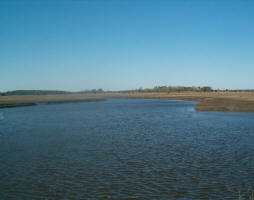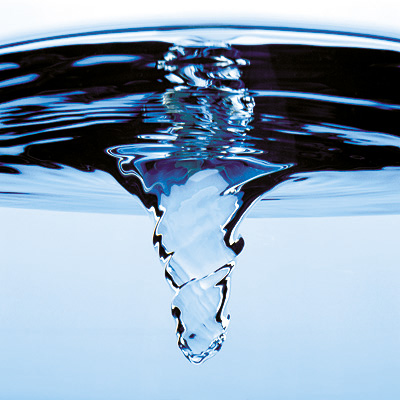 Fresh Water For The World's Poorest
Fresh Water For The World's Poorest
Lack of water causes great distress among the population in large parts of
Africa and Asia. Small decentralized water treatment plants with an
autonomous power supply can help solve the problem: They transform salty
seawater or brackish water into pure drinking water.
Large industrial plants for the desalination of seawater deliver 50 million
cubic meters of fresh water every day – particularly in the coastal cities
of the Middle East. However, the technology is complex and consumes large
amounts of energy. It is not suitable for the arid and semiarid regions of
Africa and India, though these are the very places where it is becoming
increasingly difficult to supply drinking water, particularly in rural
areas.
Small desalination units run by solar power are a better solution in arid
and semi-arid rural regions with no access to electricity, said Joachim
Koschikowski of Germany's Fraunhofer Institute for Solar Energy Systems ISE.
His team, based in Freiburg, Baden-Wurttemberg, has developed such units
with funding from the European Union.
| Contact information |
Fraunhofer-Gesellschaft
(email: http://www.fraunhofer.de/EN) |
|---|---|
| News type | Inbrief |
| File link |
http://www.sciencedaily.com/releases/2008/01/080104140733.htm |
| Source of information | Science Daily |
| Keyword(s) | desalination |
| Subject(s) | ANALYSIS AND TESTS , CHARACTERISTICAL PARAMETERS OF WATERS AND SLUDGES , DRINKING WATER AND SANITATION : COMMON PROCESSES OF PURIFICATION AND TREATMENT , MEASUREMENTS AND INSTRUMENTATION , SANITATION -STRICT PURIFICATION PROCESSES , WATER QUALITY |
| Relation | http://www.emwis.net/topics/Desalination |
| Geographical coverage | Germany |
| News date | 07/02/2008 |
| Working language(s) | ENGLISH |
 you are not logged in
you are not logged in





